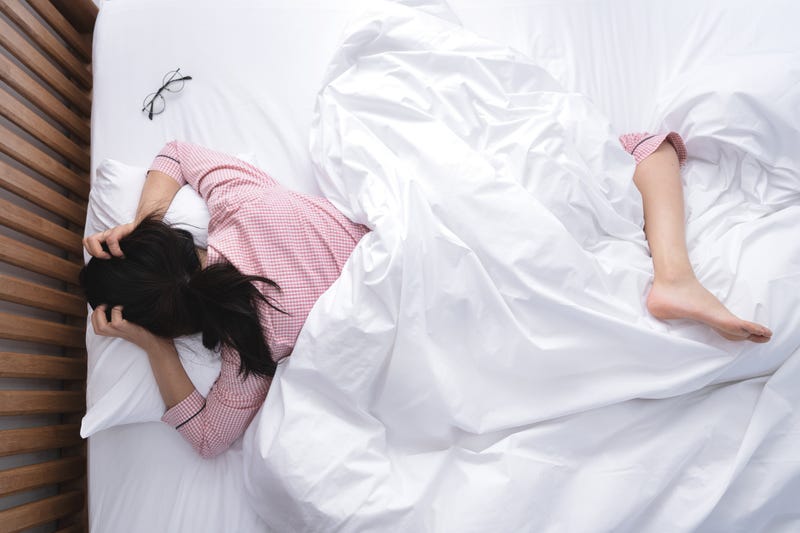
Recent research indicates that poor sleep is associated with developing Alzheimer’s disease, a condition that leads to memory loss.
“Rapid eye movement (REM) sleep is markedly altered in Alzheimer’s disease (AD), and its reduction in older populations is associated with AD risk,” said a study published in the May issue of the Annals of Neurology journal.
Researchers who conducted the study sought to learn more about the underlying brain mechanisms behind this phenomenon. They conducted various tests on 121 subjects – all older adults with cognitive impairment.
According to the Alzheimer’s Association, “Alzheimer’s changes typically begin in the part of the brain that affects learning,” and as the disease advances, “it leads to increasingly severe symptoms, including disorientation, mood and behavior changes; deepening confusion about events, time and place; unfounded suspicions about family, friends and professional caregivers; more serious memory loss and behavior changes; and difficulty speaking, swallowing and walking.”
Currently, the disease has no cure. Scientists believe that it impacts “parts of a cell’s factory” but they have not been able to pinpoint where the problem starts. Deposits of a protein fragment called beta-amyloid (plaques) in between nerve cells and twisted fibers of another protein called tau (tangles) that build up inside cells have also been linked to Alzheimer’s.
To study the relationship between REM sleep and the disease, authors of the study focused on the “microstructure,” of the sleep state.
A 2020 study published in the Sleep Medicine Reviews journal explained that “(REM) sleep is a peculiar neural state that occupies 20-25% of nighttime sleep in healthy human adults and seems to play critical roles in a variety of functions spanning from basic physiological mechanisms to complex cognitive processes.” It further explained that “REM sleep exhibits a plethora of transient neurophysiological features, such as eye movements, muscle twitches, and changes in autonomic activity, however, despite its heterogeneous nature, it is usually conceptualized as a homogeneous sleep state.”
Per the study published in the Annals of Neuroscience journal, REM is characterized by “an intense cortical activity, mainly in the theta (4–8 Hz) and alpha (8–12 Hz) frequency ranges, resulting from the activation of the cholinergic system,” and that “patients with Alzheimer’s disease (AD) dementia show REM sleep alterations both at the macrostructural and microstructural levels.”
Results from the study suggest “that alterations of REM sleep microstructure are associated with greater neurodegeneration and neocortical amyloid deposition in older adults.”
Previously, a 2018 study published in the Journal of Alzheimer’s Disease found that “the increase in relative theta power may be the first change in patients with dementia due to AD,” referring to the theta frequency also mentioned in the recent study. According to a 2019 study in the Educational Technology Research and Development journal, theta power is “brain oscillation ranging from 4 to 7 Hz that has been linked to cognitive and memory performance.”
Researchers who conducted the study published in the Annals of Neuroscience journal said more studies are needed to determine if adults exhibiting REM sleep alterations “are more at risk of cognitive decline and belonging to the Alzheimer’s continuum.”
Other research released this year from the University of California, Berkley, found that deep slumber might help fight against memory loss for older adults.
“With a certain level of brain pathology, you’re not destined for cognitive symptoms or memory issues,” said Zsófia Zavecz, a postdoctoral researcher at UC Berkeley’s Center for Human Sleep Science. “People should be aware that, despite having a certain level of pathology, there are certain lifestyle factors that will help moderate and decrease the effects.”


